Latest Circular economy
.jpg)
Forum on Food Waste 2023
Countdown to 2030: Together against food waste, November 2023
Year: 2023
The Forum on Food Waste is a national platform to bring policy leaders, businesses and experts from across the food supply chain together and provides a valuable network for information exchange on food waste prevention and reduction activities.
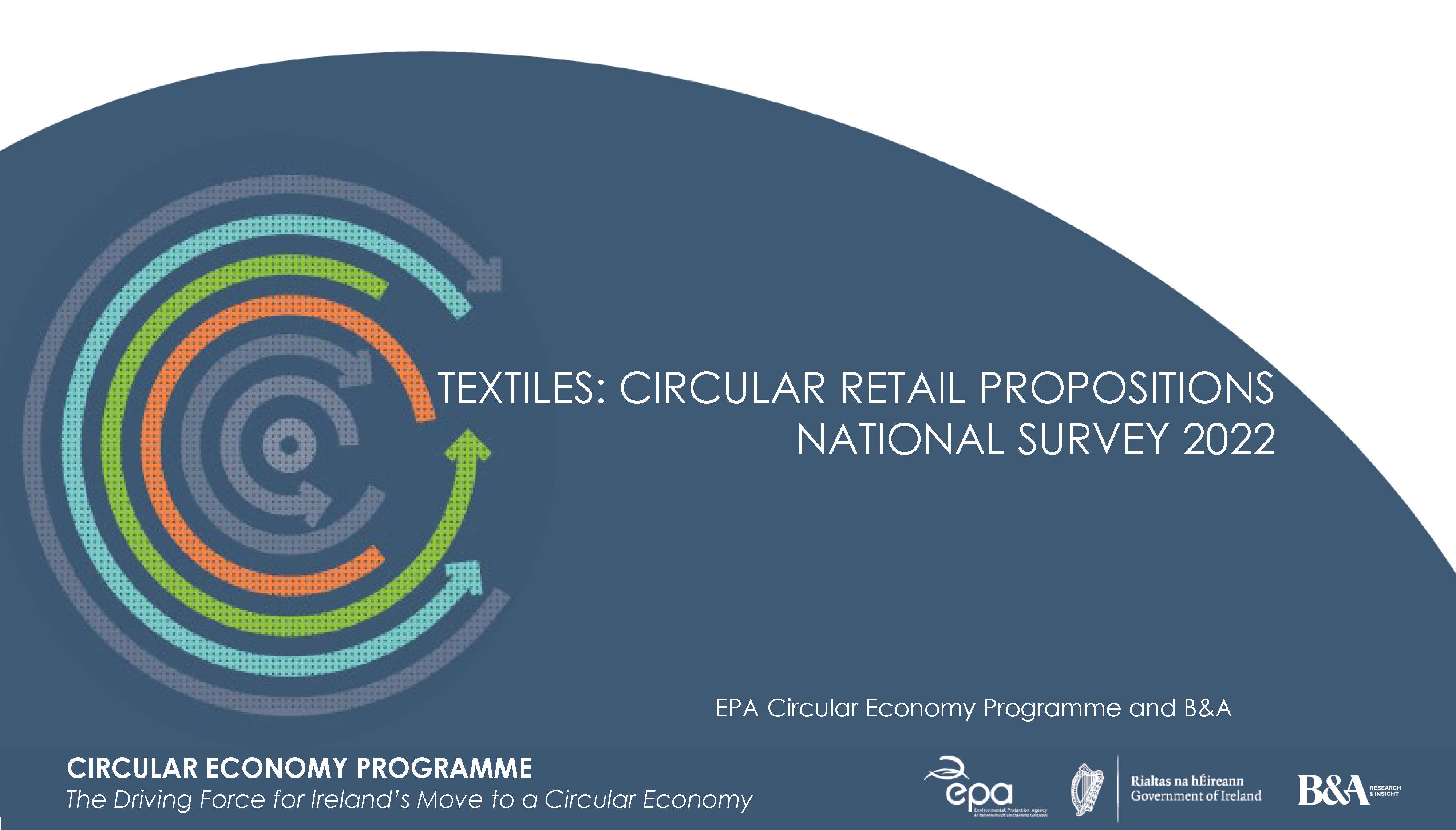
Textiles: Circular Retail Propositions National Survey 2022
Reference year 2022, October 2023
Year: 2023
This quantitative research is a nationally representative survey of Irish citizens to evaluate their awareness, current use, influencing factors and interest in circular textiles retail propositions; clothing take-back schemes, rental service, clothing items made from recycled fibres, and brands selling second hand clothing.

Textiles: Circular Retail Propositions National Survey 2022 data set
2022 reference year, October 2023
Year: 2023
This report presents quantitative research findings from a nationally representative survey of Irish citizens to evaluate their awareness, current use, influencing factors and interest in circular textiles retail propositions.

EPA Circular Economy National Textiles Survey 2022 - Survey Data
2022 Reference Year, October 2023
Year: 2023
This excel file provides the data from the National Textiles Survey 2022 in the accompanying sheets and where used should reference the EPA
Developing a circular textiles system for Ireland
A Green Enterprise project , September 2023
Year: 2023
This Community Resources Network Ireland (CRNI) project reviewed and piloted options for collection of post consumer textiles in Ireland.
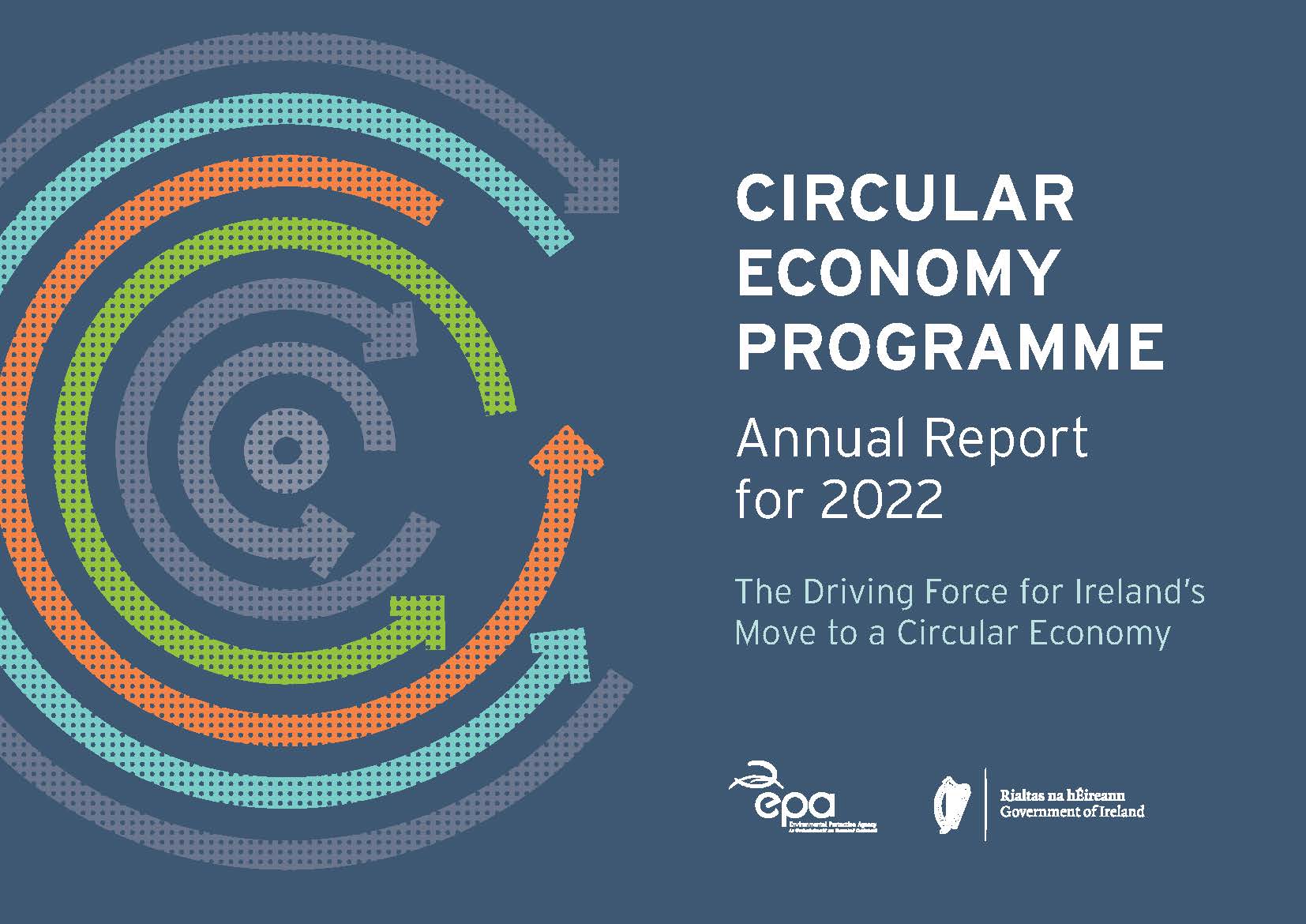
Circular Economy Programme Annual Report for 2022
Year: 2023
This report sets out our key activities and highlights for 2022
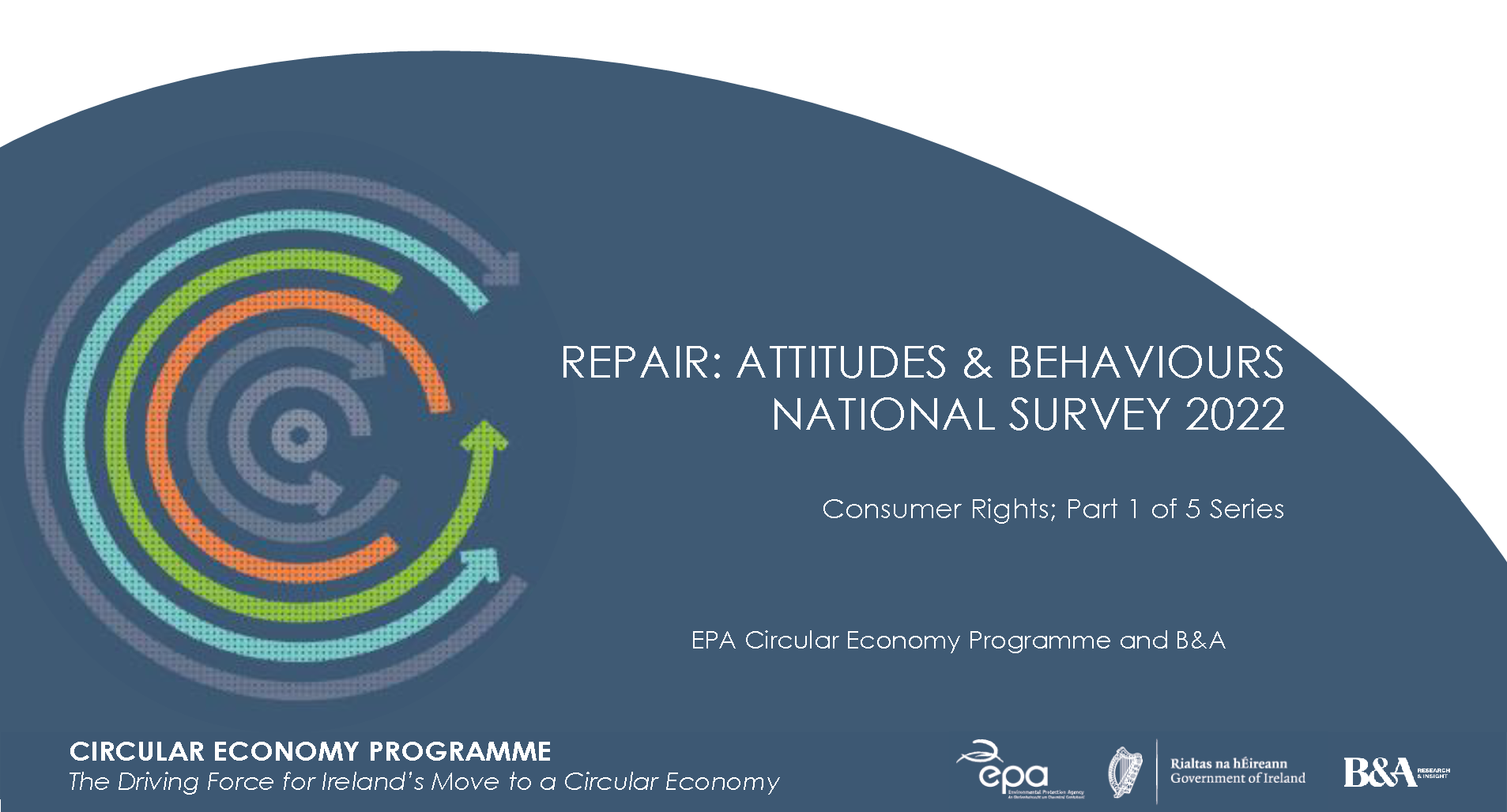
National Repair Survey 2022: Motivations to Repair; Part 5 of 5
2022 reference Year, September 2023
Year: 2023
This report presents quantitative research findings from the first nationally representative baseline survey on Irish citizen's attitudes, awareness and behaviours relating to repair. The survey topic areas are presented in a series of five reports, this report is Part 5: Motivations to Repair,

National Repair Survey: Professional Repair Services; Part 4 of 5
2022 Reference Year, September 2023
Year: 2023
This report presents quantitative research findings from the first nationally representative baseline survey on Irish citizen's attitudes, awareness and behaviours relating to repair. The survey topic areas are presented in a series of five reports, this report is Part 4 Professional Repair Services.

National Repair Survey 2022: Appetite to advance the Repair Economy; Part 3 of 5
2022 Reference Year, September 2023
Year: 2023
This report presents quantitative research findings from the first nationally representative baseline survey on Irish citizen's attitudes, awareness and behaviours relating to repair. The survey topic areas are presented in a series of five reports, this report is Part 3: Appetite to advance the Repair Economy.

National Repair Survey 2022: The Repair Economy; Part 2 of 5
2022 Reference Year, September 2023
Year: 2023
This report presents quantitative research findings from the first nationally representative baseline survey on Irish citizen's attitudes, awareness and behaviours relating to repair. The survey topic areas are presented in a series of five reports, this report is Part 2 The Repair Economy.

National Repair Survey 2022: Consumer Rights; Part 1 of 5
2022 Reference Year, September 2023
Year: 2023
This report presents quantitative research findings from the first nationally representative baseline survey on Irish citizen's attitudes, awareness and behaviours relating to repair. The survey topic areas are presented in a series of five reports, this report is Part 1 Consumer Rights

EPA Circular Economy National Repair Survey 2022 - Survey Data
2022 Reference Year, September 2023
Year: 2023
This Excel file provides the data from the National Repair Survey 2022 in the accompanying sheets and where used should reference the EPA.
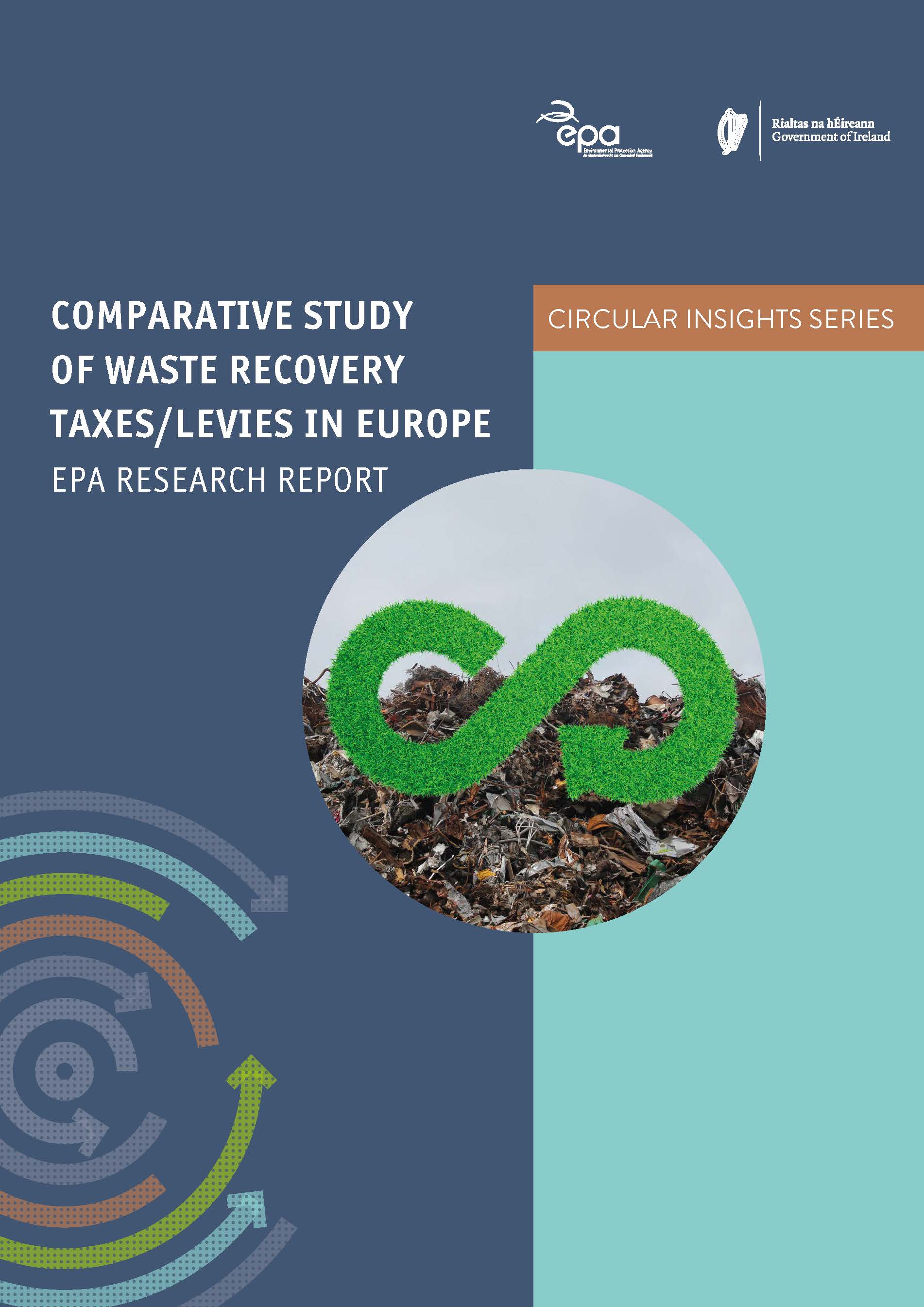
Comparative study of waste recovery taxes / levies in Europe
Year: 2023
Countries across the globe are seeking policy tools to help stimulate and accelerate a circular economy. One of the most successful policy interventions to facilitate this change can be a fiscal measure. Taxes or levies can be used to discourage one form of behaviour or activity and incentivise another more positive one. The Irish Waste Action Plan for a Circular Economy (WAPCE), published in 2020, proposed a Waste Recovery Levy of €5 per tonne (with potential for escalation) for recovery operations carried out at Municipal Solid Waste (MSW) Landfills, Waste to Energy Plants and Co-incinerators Plants and on exports of MSW. This study examines what similar taxes/levies have been applied by other EU Member States and whether there is evidence of these similar fiscal measures supporting the objectives of the proposed Waste Recovery Levy.

Circular Economy Conference 2023
Event Date: 27th September 2023 Location: Aviva Stadium Dublin and online , July 2023
Year: 2023
This hybrid event will be an opportunity to learn about recent developments in the circular economy and the opportunities and challenges in implementing a circular economy in Ireland. There will be opportunities to network and participate in polling and Q&A sessions.
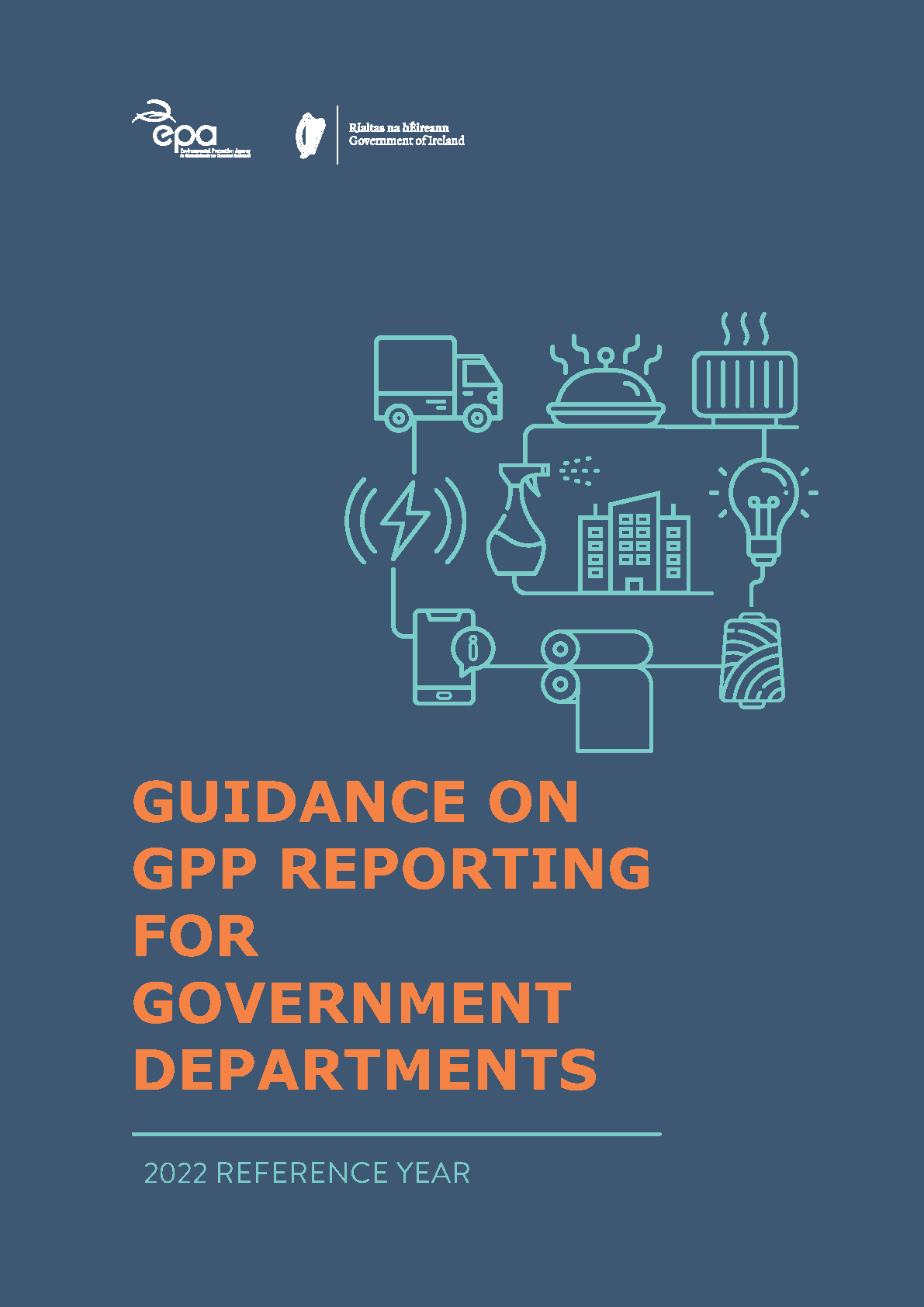
Guidance & Template for GPP Reporting by Government Departments
Reference year 2022, June 2023
Year: 2023
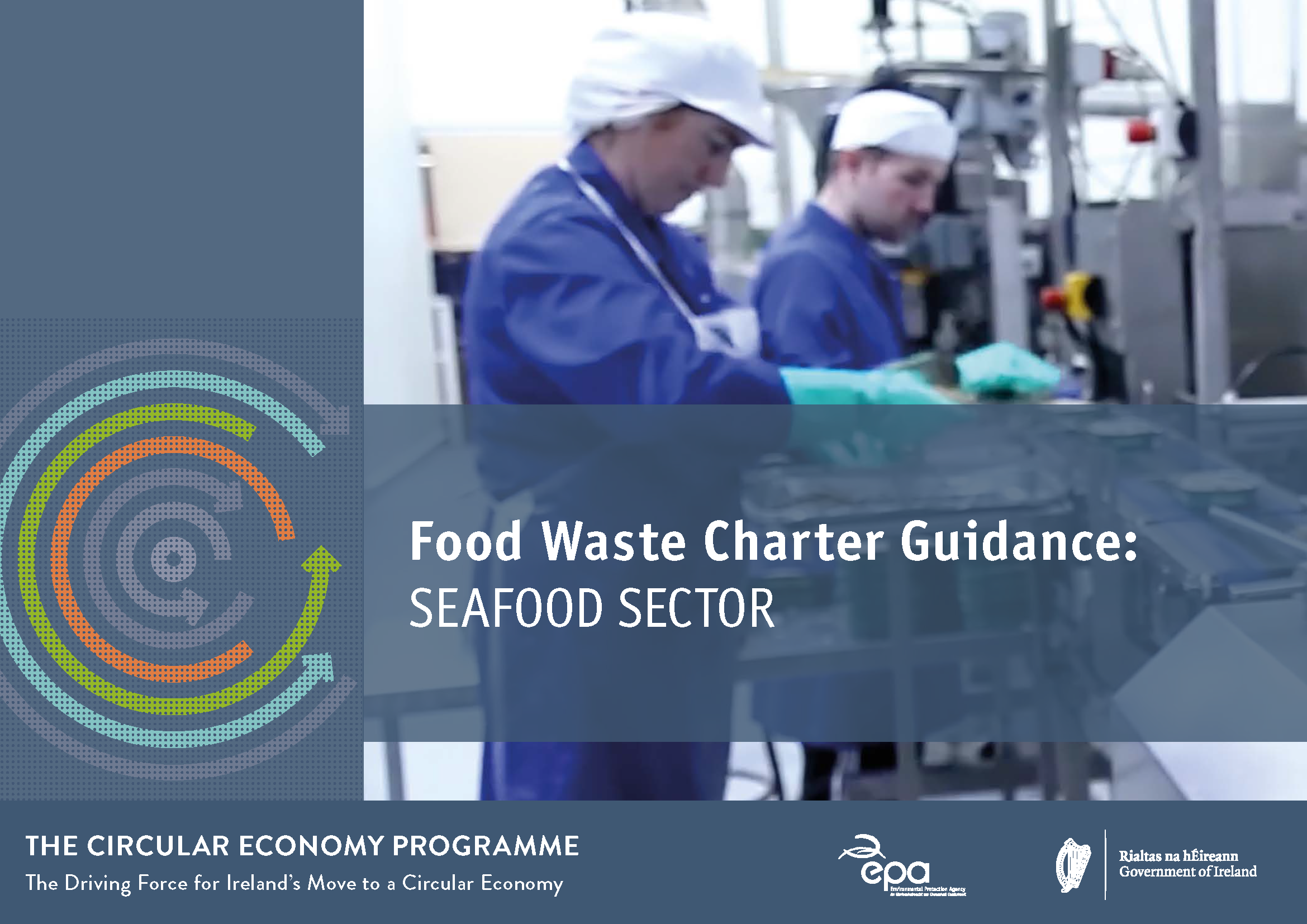
Food Waste Charter Guidance: Seafood Sector
Year: 2023
Tackling food waste is one of the key steps we can all take to help combat climate change and support Ireland’s transition to a circular economy. This guidance provides a checklist of actions to help measure your organisation’s progress in taking action to reduce food waste, along with some case studies to inspire you.
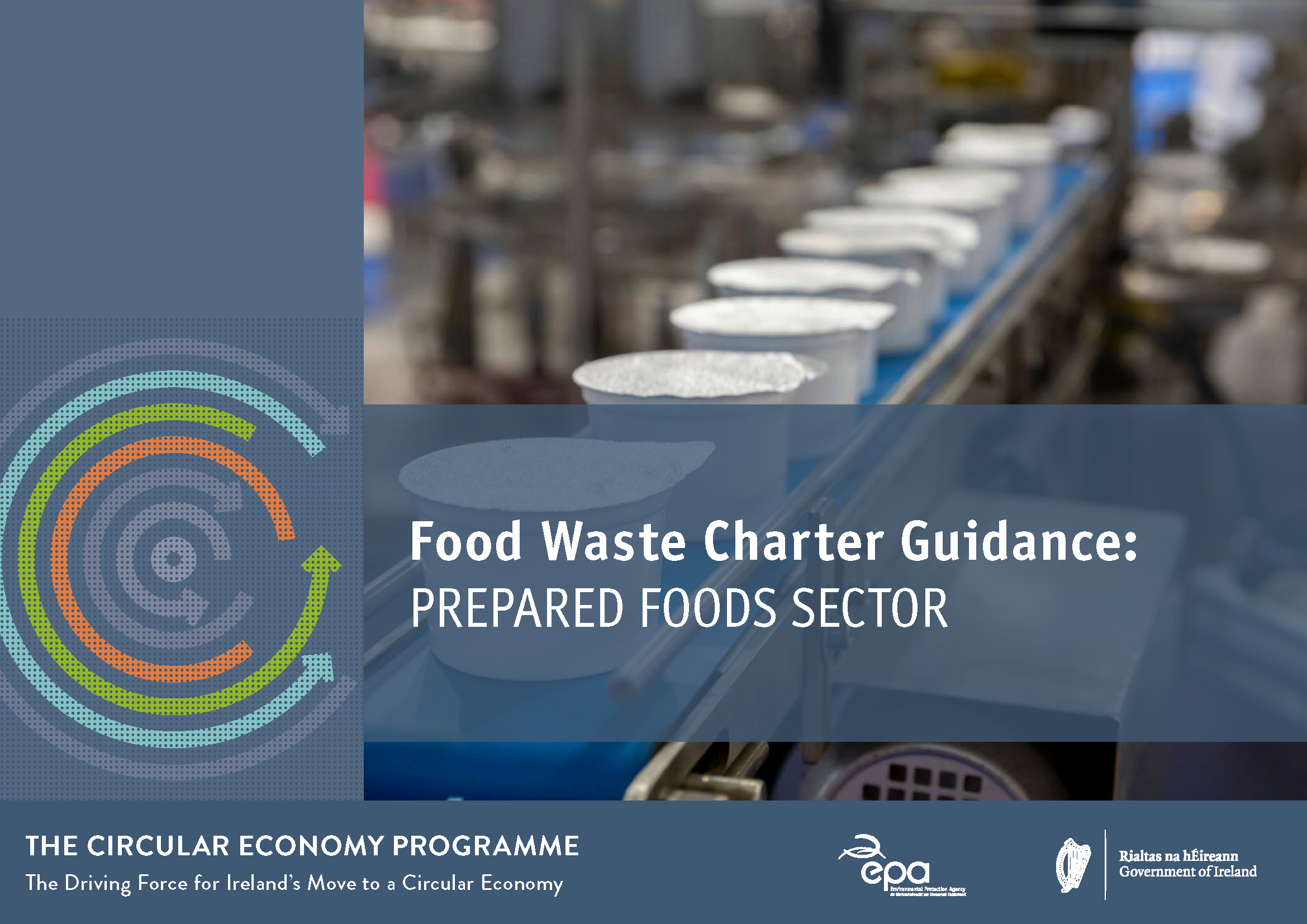
Food Waste Charter Guidance: Prepared Foods Sector
Year: 2023
Tackling food waste is one of the key steps we can all take to help combat climate change and support Ireland’s transition to a circular economy. This guidance provides a checklist of actions to help measure your organisation’s progress in taking action to reduce food waste, along with some case studies to inspire you.
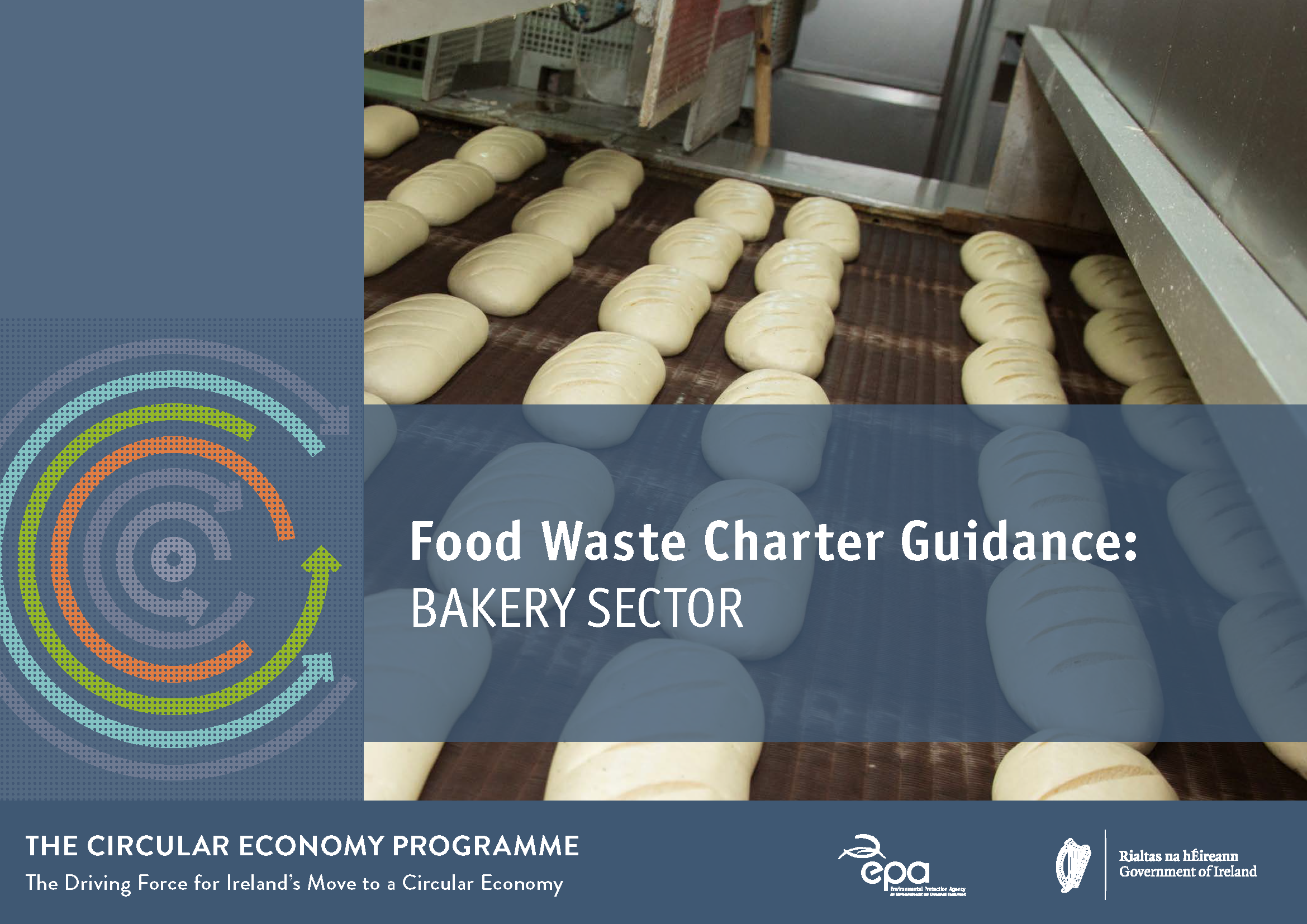
Food Waste Charter Guidance: Bakery Sector
Year: 2023
Tackling food waste is one of the key steps we can all take to help combat climate change and support Ireland’s transition to a circular economy. This guidance provides a checklist of actions to help measure your organisation’s progress in taking action to reduce food waste, along with some case studies to inspire you.

EPA Circular Economy National Textiles Survey Data 2021
2021 Reference Year, April 2023
Year: 2023
This Excel file provides the data from the National Textiles Survey 2021 in the accompanying sheets and where used should reference the EPA.

National Textiles Survey 2021: Sustainable Consumption and Use II; Part 5 of 5
2021 Reference Year, April 2023
Year: 2023
This report presents quantitative research findings from the first nationally representative baseline survey on Irish citizens’ attitudes, awareness and behaviours relating to textiles. The survey topic areas are presented in a series of five reports, this report is Part 5 Sustainable Consumption and Use II.